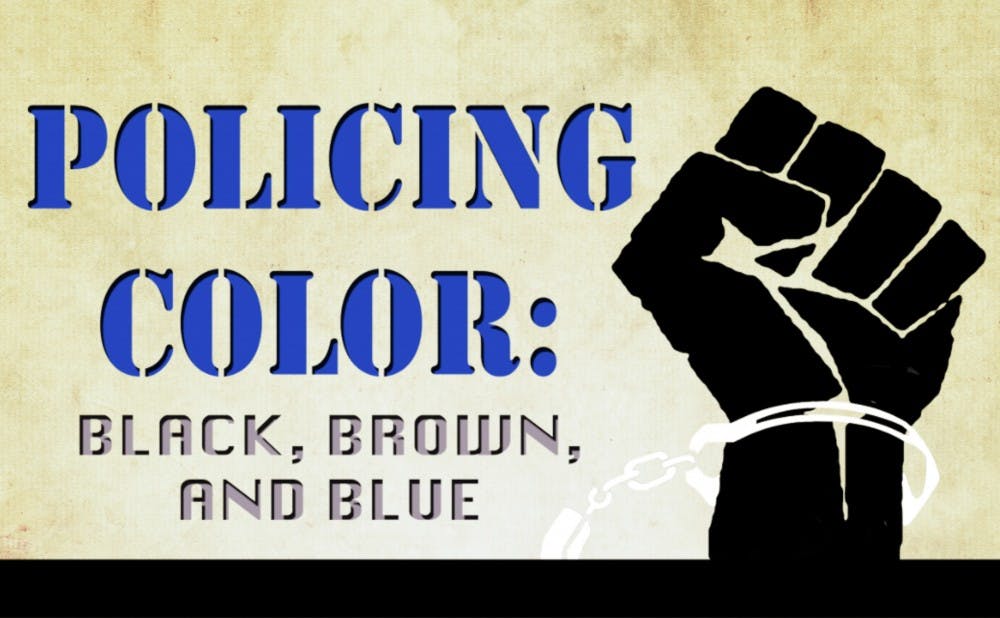The 2017 Provost's Forum tackled difficult conversations surrounding racism and police brutality.
Presented by Provost Sally Kornbluth, the all-day event Friday featured five panels that sought to diagnose the root of racialized police brutality and propose solutions. Panelists included police, mothers, academics, and members of non-governmental organizations.
“There is not an acceptable number of innocent people who should be killed by police of any color,” said Crystal Fleming, assistant professor of sociology at Stony Brook University and one of the speakers.
Fleming argued that domestic efforts to raise awareness about the impact of racial violence on affected demographics must be careful about relying on numbers because this could minimize the lives of people who face discrimination.
“It’s not okay if it’s only a 100, only 50 or only 10,” Fleming said. “And we do a disservice to the global struggle for justice when we use numbers to show how really horrible the situation is in the U.S. and minimize global violence.”
Oliver Muhammad, the imam of As Salaam Islamic Center, criticized the disproportionate incarceration of people of color in the U.S. He argued that there is a necessity to "stop feeding the industrial prison complex" new prisoners.
“They go back to the same rat traps with the same cheese on it,” Muhammad said. “They come to me saying, ‘I made a bad choice.’ I say, ‘Well, you didn’t have very much to choose from, did you?'”
From a religious standpoint, Muhammad added that the people of color's self-perception is influenced by the global narrative that God is white. This leads to pathologies such as inferiority and a lack of self-confidence, he said.
One solution for reducing police brutality is to eliminate broken window policing and stop-and-frisks, noted Song Richardson, senior associate dean and professor of law at the University of California at Irvine.
“Stops-and-frisks cannot help but work in a racially-biased way,” Richardson said.
She cited studies on racial anxiety, a psychological phenomenon in which individuals speaking to others of a different racial background fear that they are being perceived as racist or are being stereotyped. Based on findings that demonstrate police officers who experience racial anxiety are more likely to commit violence against young black men, Richardson argued that institutionalized practices such as stops-and-frisks—not necessarily the characters of police officers—are responsible for police brutality and should be eliminated.
“If I became a police officer, I would be working within an institution that is structured in a certain way,” Richardson said. “Even diversifying the department is not sufficient, because you have to engage in certain kinds of behavior.”
Richardson also called for whistleblower protections for individuals within police departments who are willing to speak up but might risk their careers in the process. She also advocated for empowering specialized unions within police departments that do not agree with the collective bargaining unions.
Scott Roberts—senior campaign director for criminal justice at Color of Change, an online racial justice organization—noted that better conversations with members of policed communities are needed.
“We need to come together as equal partners, police and community,” he said. “I don’t think they need to have a warrior mentality. I don’t think they need to have a guardian mentality either. They need to have a servant mentality. They are supposed to be working for us.”
Muhammad noted the media’s power in shaping stereotypes.
“The media has the power to make the innocent guilty, and to make the guilty innocent,” Muhammad said. “Until we challenge these sources of power, we’re going to maintain the status quo.”
Get The Chronicle straight to your inbox
Signup for our weekly newsletter. Cancel at any time.

